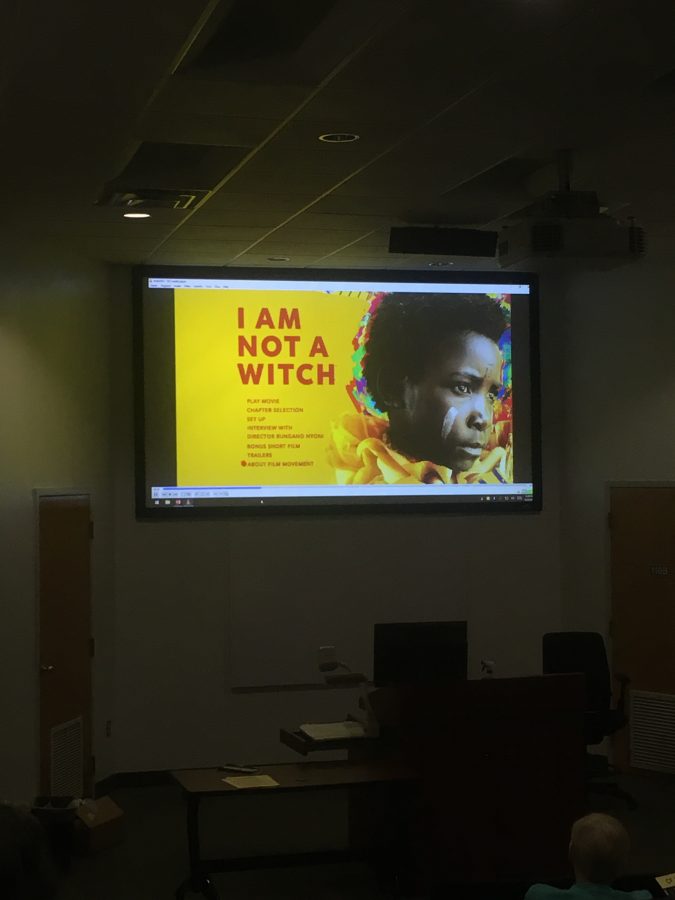
Tuesday, September 24th, the College of Central Florida International Film Series showed “I am Not a Witch,” as the second film out of ten that will be showed in the 2019-2020 school year.
On the CF campus in building 8 room 110, at seven o’clock around twice a month, there is a free showing of a film selected by the International Film Series director. The film series is made possible by patrons who donate to help purchase the rights to present the movie. There is also a two o’clock showing at the Appleton Museum of Art and is free to all museum and film series members. Nonmembers must pay museum admissions.
The film itself, directed by Rungano Nyoni, focuses on the history of African Witch Camps. Specifically how one girl gets caught up in the politics and corruptness of her government and the use of superstition to control its people.
Staged in Zambia, a young girl named Shula gets profiled as a witch and gets taken to a witch camp. It’s here where she finds a family unit unlike any she’s ever known. It’s also where the viewer sees how the women labeled “witches” are treated as slaves.
Forced to tend to fields in the blistering African heat, stripped of their identities and livelihoods, these women are depicted as government property without feeling or emotion. A tool to be used at the discretion of officials and businessmen.
As the film progresses it’s shown how Shula is forced to cope with her new existence and the viewer gets a glimpse of how deep the corruption goes regarding the situation of the “witches.”
However, something to note would be that none of these higher issues truly develop in the film. While they are shown and explained, nothing gets resolved. The story truly does stay Shula’s until the very end when her fellow witches send her off with a tear-jerking funeral after she chooses that she will no longer live as a witch.
Ira Homes, founder of the International Film Series, commented on the movie, “It was very touching,” said Homes. “It really makes you think about where we get our identity. Makes you ask a lot of questions.”
Homes started the International Film Series in 1962. He said it started out as a club at first and with only a small group of people. Joe Zimmermen, a literature and film professor at CF, took over running the series for Homes twelve years ago. Zimmerman is now in charge of picking the films and mini themes of each series shown.
“I try to choose films from around the globe,” said Zimmerman. “It’s important for us to understand other cultures. To do that, you must look at their art.”
Zimmerman also commented on how this is the first film shown at the series that was directed by an African female. The mini-film series for the Fall semester is female directors, which was another reason to choose Nyoni’s film to watch. Zimmerman also professed to have some help picking the film by asking for someone of the long term members of the film series for advice. One of them being a friend of his, Kamy Denice.
Denice and Zimmerman meet around the time Zimmerman took on the leadership of the film series. She comes very often to the showings and discusses them with Zimmerman.
In regards to the film, Denice says it was a very interesting film and got you thinking about some of the metaphors. What was real and what wasn’t.
It’s true that the film never leans toward one way or another about whether the claims of witchcraft are real or simply a ploy to get free labor out of these women alienated by society. That is left up to the viewer to decide on what they believe. After the conclusion of the film, Zimmerman got up to invite those in the audience who wanted to stay for a discussion about the film, to please do so. He started the conversation with this outlook on film.
“Judge a film for what it is,” Zimmerman said. “Not what you want it to be.”
Story & photos by: Trinity Salcedo



